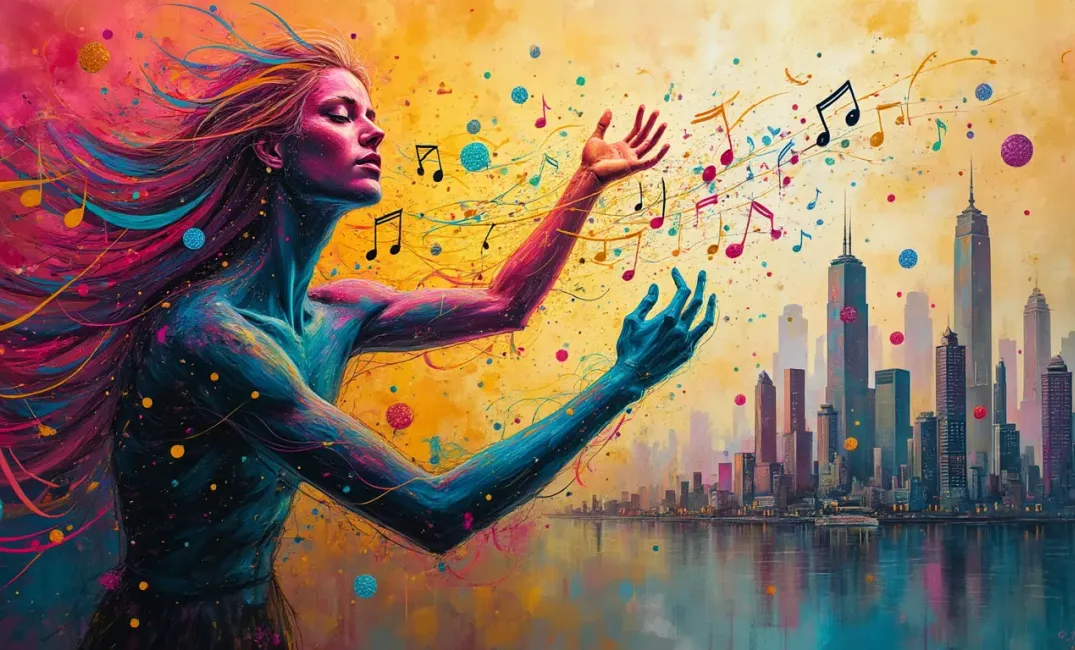Introduction: The Heartbeat of Humanity
"The soul becomes dyed with the color of its thoughts." — Marcus Aurelius
Emotions form the silent symphony of the human experience. They animate our thoughts, steer our actions, and color every moment of existence. As humans ventured from the safety of caves to the boundless skies, emotions have been both compass and companion, influencing individual lives, shaping cultures, and determining the course of civilizations. From the euphoria of discovery to the despair of loss, understanding the pulse of human emotions elucidates their indispensable role in history and provides insights for navigating humanity's uncertain future.
The Evolutionary Origins of Emotion
Emotions as Survival Tools
- Instincts and Emotions: Emotions have evolutionary roots, functioning as responses to environmental stimuli that enhance survival. Fear prompts flight from predators; love fosters bonds essential for cooperative survival and propagation. These primal emotions laid the foundations upon which complex emotional landscapes were built.
- Neurochemical Responses: The biochemical underpinnings of emotions—hormones such as adrenaline or oxytocin—forge reactions critical for immediate responses to threats or social bonding. These somatic responses are intertwined with survival, conditioning human behaviors across aeons.
The Development of Complex Emotions
- From Survival to Sophistication: As brain structures evolved, so too did the complexity of emotions. This evolution allowed for nuanced experiences, like nostalgia or empathy, that transcend mere survival, enriching human interpersonal interactions and fostering intricate cultural dynamics.
- Cultural Interpretations of Emotion: While emotions are universally experienced, cultural interpretations and expressions vary significantly. Happiness, grief, and anger are globally recognized but are colored by cultural narratives, affecting both personal experiences and collective behaviors.
Emotions and Human Experiential Landscapes
The Influence on Art and Literature
- Emotive Inspiration: Art is a reflection of emotional landscapes. From Van Gogh's tempestuous brushstrokes to Beethoven's sonorous symphonies, emotions transcend time through artistic expression, inviting audiences into the depths of human experience and understanding.
- Literature and Emotional Exploration: Literature, in its myriad forms, evokes and examines the spectrum of human emotion. Epic tales, love sonnets, and tragic narratives reveal the complexity of emotions, resonating with readers through timeless shared experiences.
Religion, Faith, and Emotional Resonance
- Emotional Foundations of Belief: Religious and spiritual beliefs often invoke profound emotions, offering solace amidst mystery and chaos. Rituals, prayers, and meditations channel emotions towards transcendence or understanding, anchoring communal identities and personal faith.
- The Role of Emotions in Worship: Emotions amplify and are amplified in worship, creating spaces for communal experiences that evoke a sense of belonging and purpose. Joyful hymns, contrite confessions, and silent vigils reflect the gamut of emotions integrated into spiritual expression.
The Societal Impact of Emotions
Emotions and Political Dynamics
- Mobilization Through Emotion: Political leaders harness emotions to mobilize populations, for better or worse. Charismatic rhetoric fuels revolutions or justifies peace, shaping societies through emotionally charged appeals to unity, fear, or hope.
- Collective Grief and Commemoration: Traumatic events collectively experienced—wars, disasters, or political upheavals—forge communal emotions of grief or resilience. These shared moments can stimulate national narratives or policies, often memorialized through ceremonies and monuments.
Emotions in Social Movements
- Empathy and Social Change: Empathy, when collectively awakened, catalyzes social movements and addresses inequity. Historical precedents, from civil rights to climate advocacy, are driven by a heightened awareness of shared human experiences and the emotional impetus for change.
- Emotional Appeals and Activism: Successful movements leverage emotional appeals, highlighting personal stories that humanize abstract issues. Activists channel anger into advocacy, moving masses with visions of justice, dignity, and communal solidarity.
The Science of Emotions: Understanding Minds and Behaviors
Advances in Psychological and Neurological Studies
- Cognitive Emotion Theories: Modern psychology continues exploring emotions' cognitive aspects, examining how perceptions, interpretations, and memories sculpt individual emotional experiences. These insights offer therapeutic avenues for emotional regulation and resilience.
- Neurology of Emotions: Neurological research maps emotions onto brain structures, uncovering the limbic system's key role. Neuroimaging advances reveal how different regions activate emotions, providing understanding into conditions like depression or anxiety and potential treatments.
Emotion Regulation and Human Flourishing
- Therapeutic Interventions: Cognitive-behavioral therapy, mindfulness, and other interventions demonstrate how understanding emotions fosters personal well-being. By teaching emotional regulation, individuals can cultivate resilience, manage stress, and enhance interpersonal relationships.
- Emotional Intelligence: Acknowledging emotional intelligence as pivotal to personal and professional success reflects a shift towards holistic human potential. Awareness, empathy, and self-regulation are traits that enhance collaborative cultures and drive leadership effectiveness.
Conclusion: A Symphony of Emotions Guiding Humanity
"The emotions can be the slave or the master; the question is whose bidding they serve." — Anonymous
Emotions are the undercurrents of history, the often unseen catalysts propelling progress, unity, and transformation. They are both the guides and companions on humanity's journey—complex, mysterious, vivid, and integral.
As the final voyage of humankind continues beyond the confines of Earth, the role of emotions remains vital. Guiding decisions, nurturing connections, driving creativity, and fostering understanding, emotions are central to overcoming challenges.
Humanity’s emotional odyssey—a symphony of joy, despair, empathy, and love—unites across ages, bridging past and future through shared experience. Emotions, in their infinite hues, are the art and science that rest at the heart of our collective evolution, serving as reminders of our shared humanity in the cosmic dance. Embracing this heritage, we empower future generations to chart courses of emotional intelligence and collaboration, envisioning brighter horizons across the universe's vast, uncharted seas.
POLITICS, HUMANITY, PSYCHOLOGY, SOCIAL MOVEMENTS, EMOTIONS, EVOLUTION, ART, EMOTIONAL INTELLIGENCE, CIVILIZATION, SCIENCE

